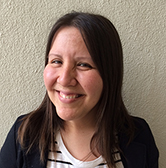LALS Best Paper Awardees

“Latinx Youth and Inclusion in the Classroom: Unpacking Microaggressions and Colorblind Racism in ‘Liberal’ Communities”
Abstract
Most research surrounding Latinx youth and schools analyse how discrimination and exclusion impact their academic success. However, there is a gap in examining how Latinx students are impacted by racism in their classrooms and feelings of inclusion. This study seeks to understand the experiences of Latinx youth faced with racist behaviors in their schools in Santa Cruz county by using the frameworks of colorblind racism, microaggressions, and racial battle fatigue. Ethnographic data and surveys were completed in Boys and Girls Clubs located in Santa Cruz county a predominantly democratic, “liberal” area. The author argues that Latinx youth in the county are facing discrimination and exclusion in their learning environments, yet are being silenced through the minimization of racism and a lack of educational support to name microaggressions, ultimately producing students with racial battle fatigue. This analysis brings attention to the ways racism and lack of inclusion impacts Latinx youth and shape their conceptual frameworks of oppression, detrimentally impacting future generations.
Professor Jessica Taft nominated Malín's paper, which was written in her senior seminar:
Over the course of the quarter, students conducted empirical research on any topic related to the intersection of youth and citizenship (understood broadly). Their final assignment was a twenty page paper, formatted like a standard social science journal article, based on that research.
 "El desplazamiento forzado en Mexico y Colombia: Los efectos de la violencia y el crimen organizado en las comunidades rurales"Abstrato
"El desplazamiento forzado en Mexico y Colombia: Los efectos de la violencia y el crimen organizado en las comunidades rurales"AbstratoEsta investigación presenta un panorama superficial de la complejidad de los conflictos y violencias que ocasionan el desplazamiento forzado de las comunidades más vulnerables en México y Colombia. Aunque se han visto iniciativas humanitarias para resolver esta situación, la violencia del estado sigue causando el desplazamiento interno de personas. A través de un análisis de contenido cualitativo, investigó la forma en la cual estas formas de intervención estatal han afectado y continúan de afectar las vidas de las personas que han sido desplazadas, preguntando: ¿Cómo se ha generado la migración forzada y el desplazamiento de los pueblos en México y Colombia por causa de la violencia? ¿De qué manera se han violado sus derechos humanos y causado la vulnerabilidad hacia estas personas? Mi investigación demuestra que la violencia sistémica de estado en todas sus formas e.g, estructural, directa, cultural y simbólica existentes en México y Colombia genera la violencia y el desplazamiento de las personas más vulnerables. Ante estos obstáculos, garantizar la seguridad personal de las personas desplazadas internamente se vuelve complicado por la falta de conciencia legislativa, política, y social.
Professor Cecilia Rivas nominated Carlo's paper produced in LALS 194R senior seminar:
"The senior seminar “Violencia cotidiana en las Américas” requires students to engage in an analysis of the causes, mediated narratives and explanations, and responses to different forms of violence in the Americas. Carlos’s participation in class was thoughtful and his contributions to the seminar included discussing academic research, reviewing the written work of his peers, and collaborating in oral presentations.
Carlos’s research paper for the senior seminar explored the causes of forced internal displacement and violence, and how this affects indigenous, peasant, and rural communities in Mexico and Colombia. He also addressed some of the connections between structural violence, state policies, and vulnerable populations. These connections point to critical questions of democracy, human rights, and mobility. Carlos demonstrated a nuanced understanding of the key ideas and scholarly sources that inform this topic, and his oral presentation was organized and concise."

"El poder mediático en México como forma de violencia"
Resumen
Esta investigación explora la forma en la cual Televisa y TV Azteca, los principales medios de telecomunicación en México, han creado el discurso político en dicho país y cómo este discurso es violento y agresivo contra el pueblo mexicano. A través de un análisis de contenido cualitativo, investigó la forma en la cual estas dos empresas han promovido campañas políticas, centrándome en la del actual presidente Enrique Peña Nieto con el fin de controlar la información y al pueblo mexicano, preguntado, ¿Cuales son los principales medios de comunicación que favorecieron la elección presidencial de Enrique Peña Nieto? ¿qué tan grande es la influencia de estos medios de telecomunicación en la política mexicana? ¿qué papel desempeñan? ¿quién o quiénes se benefician de este discurso? Observando videos de la propaganda de Peña para su candidatura presidencial en el 2012 encontrados en Youtube y analizando reportajes que se han publicado después de su elección, muestro cómo a pesar de la violencia y la represión en el pals Televisa y TV Azteca aun siguen patrocinando y distorsionando la realidad que existe en México, una realidad de violencia, represión y muerte contra el pueblo de México.Professor Cecilia Rivas nominated Alma's paper produced in LALS 194R senior seminar:
"Alma researched and wrote this paper for LALS 194R, Violencia cotidiana en las Américas, a writing intensive seminar taught in Spanish in the fall quarter of 2016.
The senior seminar, Violencia cotidiana, requires students to engage in an analysis of the mediated narratives, explanations, and responses to different forms of violence in the Americas. Alma’s written work was thoughtful and her contributions to the seminar included an oral presentation, reviewing the written work of her peers, exams, and discussing research articles, books, films, news, and other media sources. Fluency in academic Spanish (written and spoken) is a requirement for this course, and Alma demonstrated excellence in these language skills.
In this paper, Alma examines the influence of television networks and other mass media on Mexican political culture, focusing on the 2012 presidential elections. She takes into account Mexico’s media systems, journalistic practices, and social conditions. Overall, Alma demonstrated a nuanced, critical understanding of the range of disciplines that inform this topic, bridging the fields of Latin American and Latino Studies, Sociology, and Media/Communication."
